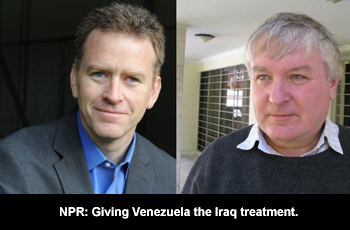As anyone who listens to my podcast, Strange Sound, knows, I’ve had serious differences with the Biden team on foreign policy from early on in their campaign. What first gave me pause was the fact that the “issues” section of their campaign web site included no foreign policy items whatsoever, except one or two bank-shot mentions of other countries in the context of discussions about domestic policy issues, like immigration and energy policy. Of course, absence of evidence is not evidence of absence, as Donald Rumsfeld once told us, and in this context the cliche is true – while Biden’s outward-facing platform was a blank slate on foreign policy, there was definitely a there there, even if we couldn’t see it. And, no great surprise, the Biden foreign policy is basically built around the return of the blob (a.k.a. the imperial foreign policy establishment that has dominated administrations of both major parties since the American empire began).
We saw evidence of this in stark relief this past week with the bombing of “Iranian-backed” elements in Syria. Immediately we saw mainstream commentators like Richard Haas on television describing this as a measured and appropriate response to what they described as Iranian provocations, parroting the administration line that the U.S. needed to do this to show the Iranians that they can’t do whatever they want in the region without consequences. (That privilege we reserve to ourselves, of course – hence the raid.) The Biden administration is taking the path of least resistance, returning to the settled imperial order of confronting Iran at every opportunity, imposing conditions on them unilaterally, and not taking responsibility for our own disastrous policy decisions over the past four years (which, themselves, compounded the disastrous policy decisions of the preceding 75 years).
The fact is, the Biden administration is building on that bad policy. While Anthony Blinken has not openly endorsed Trump’s recognition of Israeli sovereignty over the occupied Golan Heights, he is leading the State Department in returning to something that still looks a lot like that recognition, while keeping the American embassy in Jerusalem – a decision that cements in place this open defiance of the very concept of a two-state solution. The Biden State Department is still calling Juan Guaido the “interim president” of Venezuela when he is, in fact, no such thing and has no standing as the leader of that country – a delusional policy originated by the Trump crew. Biden is unlikely to withdraw U.S. recognition of Moroccan sovereignty over Western Sahara, a criminal quid-pro-quo over recognition of Israel, brokered by the Trump administration. Don’t even get me started on Saudi Arabia. In fact, as far as I can see, the only policy Biden appears poised to reverse is Trump’s opening to North Korea – literally the only good thing the man ever did (albeit by accident).
With respect to foreign affairs, war and peace, we appear to be locked into place, regardless of which major party runs the White House. Bad news for anyone who might have hoped this presidential transition would bring a saner approach to the world. Doesn’t seem likely.
luv u,
jp


